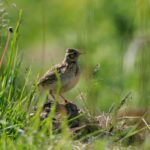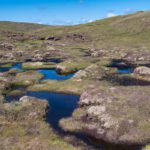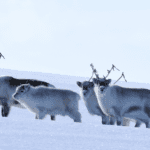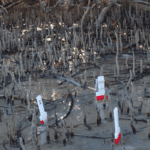Rewild the night sky by tackling light pollution says charity
Chris Packham is urging the public to spend 20 minutes counting stars to help build a crucial national database mapping light pollution. The broadcaster...
Birds bounce back when farms devote 10% of their land to nature-friendly measures, says...
A more strategic approach to wildlife-friendly farming schemes is required to recover England’s farmland bird populations, according to a new study led by the...
Measuring oil contamination in soil
Petroleum hydrocarbons in soil continues to be an area of interest for scientists as they are the most common contaminants that are toxic to...
New green infrastructure framework “is an opportunity to brighten millions of lives”
With one in three people – around 9.4 million households - lacking easy access to nature (and the huge health and wellbeing benefits that...
Exhibition explores how peatlands protect the planet
A new exhibition opening at the University of St Andrews’ Wardlaw Museum explores the importance of peatlands in Scotland and across the world.
While peat...
New tree guidance published for local authorities
A new toolkit has been published, designed to provide local authorities across the country with specific guidance on tree planting, supporting them to plan...
Sponsored Content: Sensors help optimise growing conditions underground
Zero Carbon Farms runs a microgreens salad and herb growing operation in former WWII air-raid shelters in Central London. Through its sustainable growing and on-site packaging practices, and its supply to local retailers and restaurants, Zero Carbon Farms has exceeded its zero carbon footprint. In 2021 the firm secured "Carbon Neutral Plus" status.
Don’t bet the farm on forests and soils?
New research by the University of East Anglia highlights the risks of countries relying on nature-based solutions to achieve net zero
Rudolf is coping with climate change better than feared – for now
The North Pole is not what it once was. The Arctic is the area on the globe where temperatures are rising the fastest. On...
Megacities out-shine the moon in coastal environments says first quantification of artificial light at...
Coastal megacities could be illuminating the marine environment up to six times more than the moon but are often not considered when reviewing stressors...
ELMs: farmers back funding for hedgerow expansion, CPRE survey shows
There is overwhelming support among farmers for the government to introduce a target to expand the country’s hedgerow network, according to a survey conducted...
Global standard for biodiversity impacts moves a step closer
A proposed reporting standard that seeks to unlock accountability for the impacts organizations have on the natural world, informing the global response to a...
Woodlands conservation charity opens applications for scientific research programme
Time is running out to apply for the latest round of Woodland Trust grants which could fund research to help solve the climate and...
Hibernating corals and the microbiomes that sustain them
As winter approaches, many species of animals — from bears and squirrels to parasitic wasps and a few lucky humans — hunker down for some...
Microfibres in the Mediterranean are floating homes for bacteria
Almost 200 species of bacteria colonize microfibres in the Mediterranean Sea, including one that causes food poisoning in humans, according to a new study...
Mangroves are environmental guardians of the coastline, says research
They are the salt-tolerant shrubs that thrive in the toughest of conditions, but according to new research, mangroves are also avid coastal protectors, capable...
Fifteen ways to reforest the planet: Latest research profiled in publication
A dedicated issue of the Royal Society’s Philosophical Transactions explores the latest scientific advances in forest restoration.
“This paves the way for evidence-based, on-the-ground action...
Bough selecta: Platform assists tree recording for citizen science
“Earth observation and smartphones enable everyone to support environmental regeneration“, says firm
A Cornwall-based agri-tech start-up has created “the world’s first global tree platform“ for...
Forensics used to reverse the decline of biodiversity in Europe
Staffordshire University is contributing forensic intelligence to an ambitious project which aims to protect endangered species like wolf, bear, lynx, and sturgeon in remote...
Project aims to protect and connect nature across Europe
The Horizon Europe NaturaConnect Project is intended to support European Union governments and other public and private institutions in designing a coherent, resilient and...






















